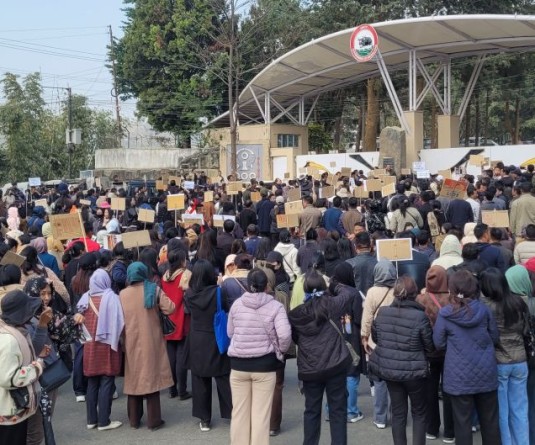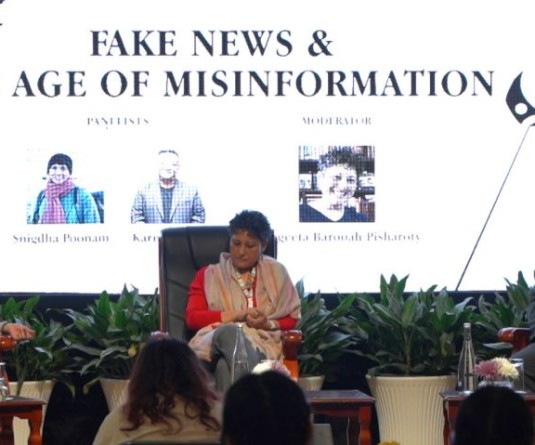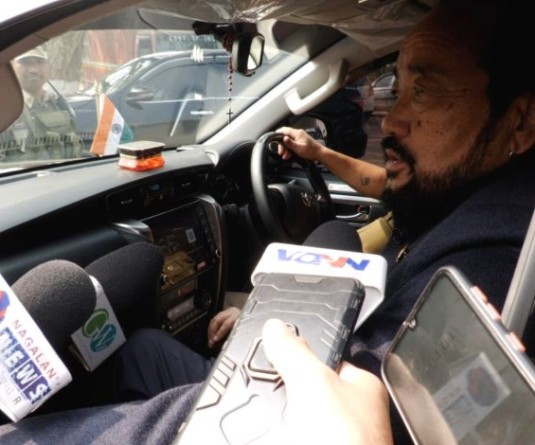Melinda Pavek, Consul General, US Consulate Kolkata speaking at the an international media workshop in Kolkata for mid-career women journalists and women professionals from the Indo-Pacific.
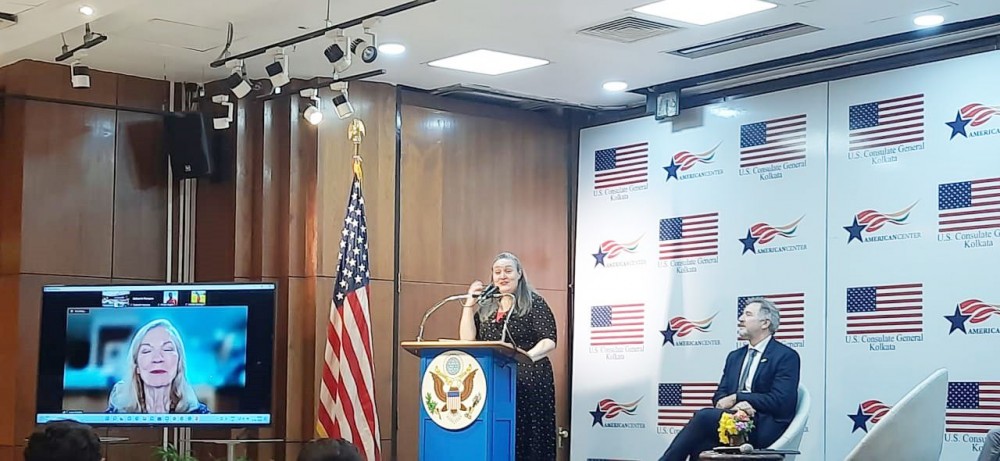
Morung Express News
Kolkata | August 11
The U.S. Consulate General Kolkata, in partnership with Consumer Unity & Trust Society (CUTS) with the support of South Asian Women in Media (SAWM) and East West Center (EWC), is hosting an international media workshop in Kolkata for mid-career women journalists and women professionals from the Indo-Pacific on August 11-12. The two-day workshop is held on the theme, ‘Role of women journalists in countering misinformation and disinformation in the Indo-Pacific Region.’
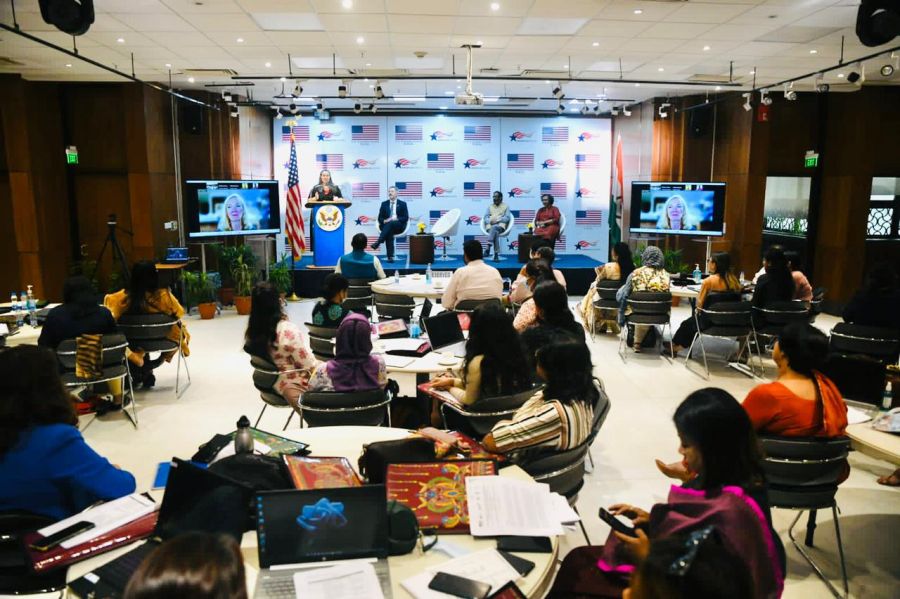
A team of five women journalists from Nagaland state are part of the workshop which is being attended by around 60 women journalists from different countries, including the U.S. and countries in the Indo-Pacific region, such as India, Nepal, Bangladesh, Bhutan, Malaysia, Indonesia, Singapore, among others.
The participants will be discussing the threats and challenges they face in their respective countries along with the good practices adopted to counter them, stated a press release from the U.S. Consulate General Kolkata.
Speaking at the inaugural session as guest of honour, Melinda Pavek, Consul General, U.S. Consulate Kolkata, emphasised the role of free and independent media as the cornerstone of a healthy democracy. She also cautioned against the adverse impact of information asymmetry with respect to undermining people’s trust in democratic institutions.
.jpg)
In this regard, she mentioned the Digital Communication Network (DCN) established by the United States. The DCN is a network of more than 8,000 journalists, educators, communicators, new media professionals, and public officials who are working to combat disinformation and propaganda. The network develops and shares tools that provide people with accurate information and fact-checking capabilities.
She concluded by stating that "the United States is working on developing, strengthening, and integrating more such networks across the Indo-Pacific region to promote media literacy, popularize fact checking, and support press freedom."
Adrian Pratt, Director, American Center Kolkata, who moderated the session said that he 'salutes' the journalists for being the "warriors of truth." He highlighted the role of digital technology in bolstering people’s access to information in real time from across the globe. However, he also pointed out its misuse by actors to spread misinformation and to harass journalists, especially women journalists.
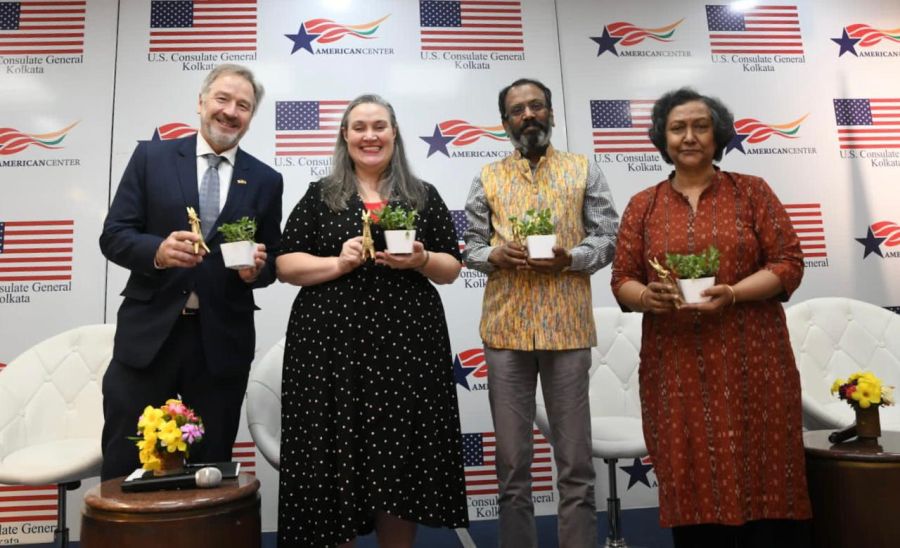
In the welcome note, Bipul Chatterjee, Executive Director, CUTS, underlined the issue of information literacy among journalists as a critical step for combating mis/disinformation. He also spoke on the importance of collecting and interpreting correct information, and also to combat and not just address them. He concluded by highlighting the role of Civil Society Organisation in the Indo-Pacific in creating information literacy among various stakeholder groups, including the media.
Setting the context for the workshop, Nilova Roy Chaudhary, General Secretary, SAWM shared challenges being faced by women journalists in South Asia. She mentioned that such challenges range from misogyny to trolling and misinformation. She emphasised the need for establishing cross-border collaboration among women journalists in the Indo-Pacific region as a tool for combating the harassment of women journalists in the workplace.
Susan Kreifels, Media Programs Manager, East West Center, argued that combatting misinformation was not a one-time exercise and required long-term effort and investment. She cited various reports indicating loss of people’s trust in media on account of misinformation and stressed the need to call out and prosecute actors who bombard society with misleading information.
The inaugural session was followed by three sessions on the following topic and the respective resource persons: 'news literacy in the age of misinformation' by Dilrukshi Handunnetti, Executive Director, Centre of Investigative Reporting, Sri Lanka; 'Press Unmute: combating workplace harassment and online trolling for women journalists' by Swati Bhattacharjee, President, SAWM and Senior Assistant Editor, Ananda Bazar Patrika; 'Be right, not first. Navigating the journalism industry as a woman' by Brittani Kollar, International Training Manager, MediaWise Poynter Institute, U.S.A.
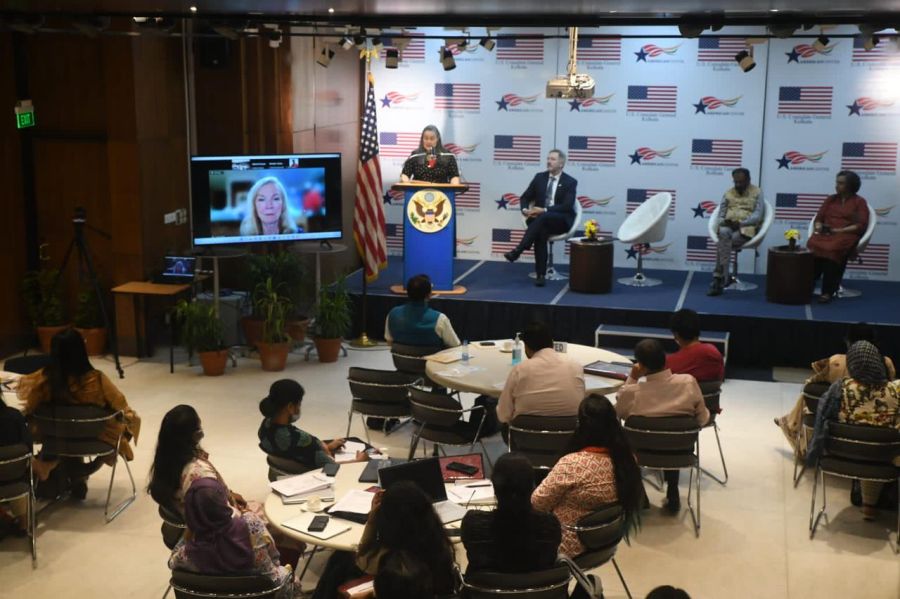
An interactive panel discussion was also held on the topic 'Disinformation and Geopolitical Stability in the Indo-Pacific Region.' Moderated by Namrata Sharma, Centre for Investigative Journalism, Nepal, the experts in conversation were Suhasini Haidar, Diplomatic Editor, The Hindu; Mrinal Chatterjee, Regional Director, Indian Institute of Mass Communication, Odisha; Priyadarshini Sen, Freelance Journalist; and Monideepa Banerjee, former Executive Editor, NDTV.


